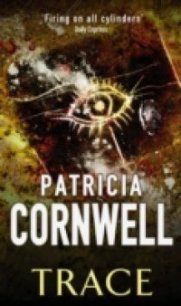All That Remains - Cornwell Patricia (серия книг TXT) 📗
"I diagnosed her as having an adjustment disorder," she said.
It was the equivalent of my saying that Jill's death was due to respiratory or cardiac arrest. Whether you are shot or run over by a train, you die because you stop breathing and your heart quits. The diagnosis of adjustment disorder was a catchall straight out of the Diagnostic and Statistical Manual of Mental Disorders. It qualified a patient for insurance coverage without divulging one scrap of useful information about his history or problems.
"The entire human race has an adjustment disorder," I said to Anna.
She smiled.
"I respect your professional ethics," I said. "And I have no intention of amending my own records by adding information that you consider confidential. But it's important for me to know anything about Jill that might give me insight into her murder. If there was something about her life-style, for example, that might have placed her at risk."
"I respect your professional ethics as well."
"Thank you. Now that we've established our mutual admiration for each other's fairness and integrity, might we push formalities aside and hold a conversation?"
"Of course, Kay," she said gently. "I remember Jill vividly. It is hard not to remember an unusual patient, especially one who is murdered."
"How was she special?"
"Special?"
She smiled sadly. "A very bright, endearing young woman. So much in her favor. I used to look forward to her appointments. Had she not been my patient, I would have liked to know her as a friend."
"How long had she been seeing you?"
"Three to four times a month for more than a year."
"Why you, Anna?"
I asked. "Why not someone in Williamsburg, someone closer to where she lived?"
"I have quite a number of patients from out of town. Some come from as far away as Philadelphia."
"Because they don't want anyone to know they are seeing a psychiatrist."
She nodded. "Unfortunately, many people are terrified by the prospect of others knowing. You would be surprised at the number of people who have been in this office and left by way of the back door."
I had never told a soul I was seeing a psychiatrist, and had Anna not refused to charge me, I would have paid for the sessions in cash. The last thing I needed was for someone in Employee Benefits to get hold of my insurance claims and spread gossip throughout the Department of Health and Human Services.
"Obviously, then, Jill did not want anyone to know she was seeing a psychiatrist," I said. "And this might also explain why she had her prescriptions for Librax filled in Richmond."
"Before you called, I did not know she filled the prescriptions in Richmond. But I'm not surprised."
She reached for her wine.
The chili was spicy enough to bring tears to my eyes. But it was outstanding, Anna's best effort, and I told her so. Then I explained to her what she probably already suspected.
"It's possible Jill and her friend, Elizabeth Mott, were murdered by the same individual killing these couples," I said. "Or at least, there are some parallels between their homicides and the others that cause me concern."
"I'm not interested in what you know about the cases you are involved in now; unless you feel it necessary to tell me. So I'll let you ask me questions and I'll do my best to recall what I can about Jill's life."
"Why was she so worried about anyone knowing she was seeing a psychiatrist? What was she hiding?"
I asked.
"Jill was from a prominent family in Kentucky, and their approval and acceptance were very important to her. She went to the right schools, did well, and was going to be a successful lawyer. Her family was very proud of her. They did not know."
"Know what? That she was seeing a psychiatrist?"
"They did not know that," Anna said. "More importantly, they did not know she was involved in a homosexual relationship."
"Elizabeth?"
I knew the answer before I asked. The possibility had crossed my mind.
"Yes. Jill and Elizabeth became friends during Jill's first year in law school. Then they became lovers. The relationship was very intense, very difficult, rife with conflict. It was a first for both of them, or at least this was how it was presented to me by Jill. You must remember that I never met Elizabeth, never heard her side. Jill came to see me, initially, because she wanted to change. She did not want to be homosexual, was hoping therapy might redeem her heterosexuality."
"Did you see any hope for that?"
I asked.
"I don't know what would have happened eventually," Anna said. "All I can tell you is that based on what Jill said to me, her bond with Elizabeth was quite strong. I got the impression that Elizabeth was more at peace with the relationship than Jill, who intellectually could not accept it but emotionally could not let it go."
"She must have been in agony."
"The last few times I saw Jill it had become more acute. She had just finished law school. Her future was before her. It was time to make decisions. She began suffering psychosomatic problems. Spastic colitis. I prescribed Librax."
"Did Jill ever mention anything to you that might have given you a hint as to who might have done this to them?"
"I thought about that, studied the matter closely after it happened. When I read about it in the papers, I could not believe it. I had just seen Jill three days before. I can't tell you how hard I concentrated on everything she had ever said to me. I hoped I would recall something, any detail that might help. But I never have."
"Both of them hid their relationship from the world?"
"Yes."
"What about a boyfriend, someone Jill or Elizabeth dated from time to time? For appearances?"
"Neither dated, I was told. Not a jealousy situation, therefore, unless there was something I did not know."
She glanced at my empty bowl. "More chili?"
"I couldn't."
She got up to load the dishwasher. For a while we did not speak. Anna untied her apron and hung it on a hook inside the broom closet. Then we carried our glasses and the bottle of wine into her den.
It was my favorite room. Shelves of books filled two walls, a third centered by a bay window through which she could monitor from her cluttered desk flowers budding or snow falling over her small backyard. From that window I had watched magnolias bloom in a fanfare of lemony white, I had watched the last bright sparks of autumn fade. We had talked about my family, my divorce, and Mark. We had talked about suffering and we had talked about death. From the worn leather wing chair where I sat, I had awkwardly led Anna through my life, just as Jill Harrington had done.
They had been lovers. This linked them to the other murdered couples and made the "Mr. Goodbar" theory that much more implausible, and I pointed this out to Anna.
"I agree with you," she said.
"They were last seen in the Anchor Bar and Grill. Did Jill ever mention this place to you?"
"Not by name. But she mentioned a bar they occasionally went to, a place where they talked. Sometimes they went to out-of-the-way restaurants where people would not know them. Sometimes they went on drives. Generally, these excursions occurred when they were in the midst of emotionally charged discussions about their relationship."
"If they were having one of these discussions that Friday night at the Anchor, they were probably upset, one or the other possibly feeling rejected, angry," I said. "Is it possible either Jill or Elizabeth might have gone through the motions of picking up a man, flirting, to jerk the other around?"
"I can't say that's impossible," Anna said. "But it would surprise me a great deal. I never got the impression that Jill or Elizabeth played games with each other. I'm more inclined to suspect that when they were talking that night, the conversation was very intense and they were probably unaware of their surroundings, focused only on each other."


